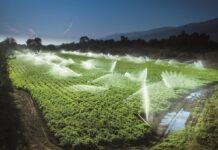Using creative impact investing solutions can help alleviate water scarcity, restore ecosystems, support farmers and drive sustainable water management, says a new report by The Nature Conservancy, a global charitable environmental organisation.
The report, Water Share: Using water markets and impact investing to drive sustainability, says that investing solutions can work especially in areas where water trading exists and water use is dominated by irrigated agriculture.
“We need to get smarter about how we use every drop of water,” said Brian Richter, Chief Scientist for the water programme at The Nature Conservancy. “We can no longer build our way out of water scarcity. But new approaches in water management can shift us toward long-term sustainability.”
The report highlights a new concept–known as Water Sharing Investment Partnerships (WSIP)–that stimulates strategic trading of water-use rights within select river and lake basins. Created by the Conservancy’s Water programme and its impact investment unit, NatureVest, the partnerships operate within an existing water market using investor capital and other revenue sources to acquire water-use rights. These rights can be reallocated to depleted freshwater ecosystems, or sold or leased to other water users seeking more supplies, thereby generating financial returns for investors.
A WSIP can acquire water rights in a variety of ways, including outright purchases of water rights from willing sellers in a water market, and by collaborating with irrigation farmers to implement water saving measures that enable farmers to transfer some portion of their unneeded water rights to the WSIP.
Richer added that WSIPs and other creative financing solutions to water scarcity have the potential to be implemented in 37 countries in water scarce regions with established water-allocation systems.
“These countries are potential candidates for impact investment- driven solutions if the right enabling conditions are put into place,” added Richter.









